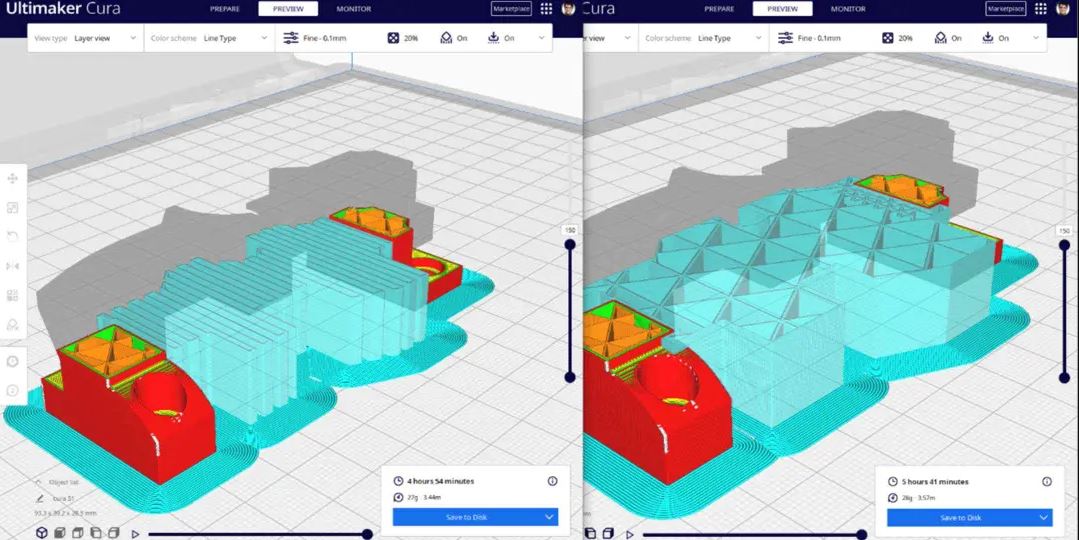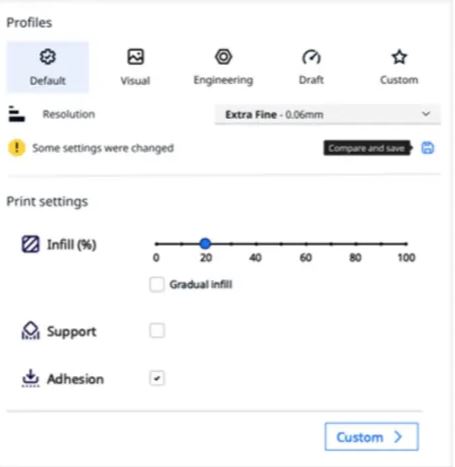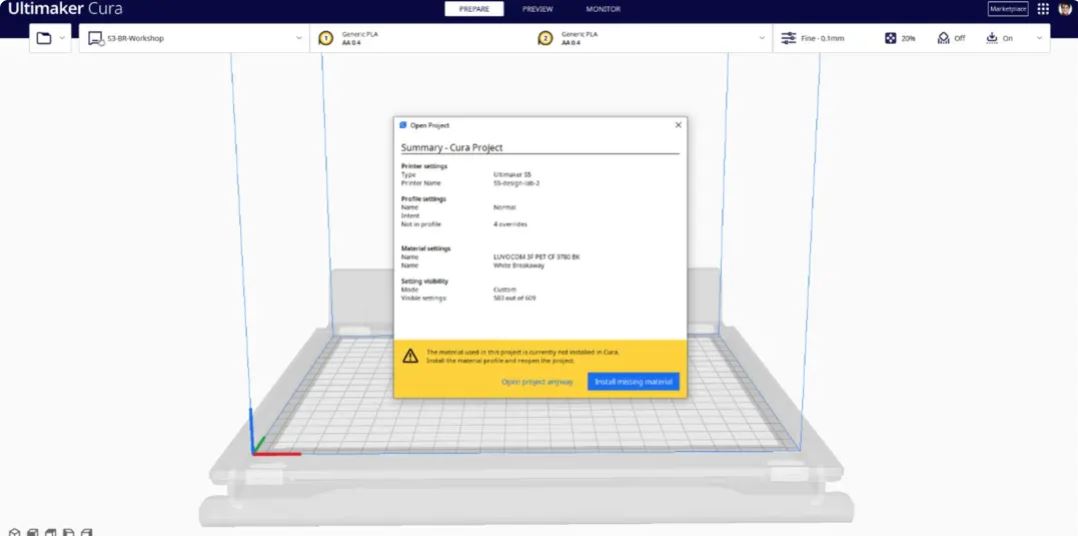Ultimaker launched Cura 5.1 with metal FFF printing feature better supports, and improved surface quality!
More from the News
The following new features have been added which are specific to metal FFF printing:
- Automatic shrinkage plate feature. A shrinkage plate will now automatically be created when using a compatible Ultrafuse® metal material profile that prevents your part from deforming during the debinding and sintering process
- DD print core support*. The new DD 0.4 print core is now supported which has been especially designed for use with the new Ultrafuse® Support Layer material
- Automatic support interface feature. When using the new Ultrafuse® Support Layer material and a compatible Ultrafuse® metal material, an interface layer will automatically be created between the model and the metal supports as well as between the model and the automatic shrinkage plate. This layer makes it easier to remove supports after sintering
These features are enabled by the newly announced Metal Expansion Kit which contains the new DD 0.4 print core and Ultrafuse® Support Layer materials. Currently the only metal print profiles compatible with these new features are the Ultrafuse® 17-4 PH, Ultrafuse® 316L, and Ultrafuse® Support Layer* materials by BASF Forward AM.
*Currently only available in Europe. The Ultimaker Metal Expansion Kit is sold without the BASF Forward AM Ultrafuse® Support Layer and Ultimaker Print Core DD 0.4 at a lower MSRP in other territories (including North America).
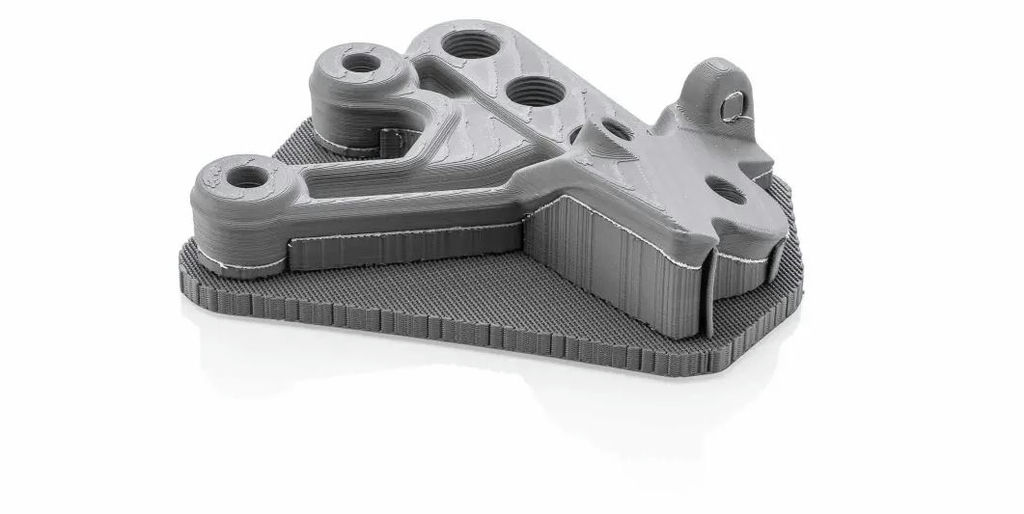
These new metal FFF features mean that a simple and affordable new metal FFF workflow is now available which not only includes the printing of parts, but also the debinding and sintering process that is made possible through BASF’s network of debinding and sintering services.
However, the foundation for this workflow was started in Ultimaker Cura version 5.0 with the following changes to the Ultrafuse® 17-4 PH and Ultrafuse® 316L print profiles:
- Automatic scaling. Metal parts are automatically scaled to compensate for shrinkage that takes place during the debinding and sintering process
- Alternate wall directions. The direction of walls is alternated to prevent distortions during the debinding and sintering process
- New slicing engine. The new slicing engine reduces internal gaps in your part that can lead to line delamination and cracks during debinding and sintering, as well as allowing for the printing of thinner walls and finer details than was previously possible when printing with metal materials
Higher segment resolution results in a improved surface quality
In our never-ending quest to help you get the best-looking prints possible, we have massively increased the segment resolution of your prints when using Ultimaker S-line printers with the latest firmware. Models with smooth curves like spheres, cones, and cylinders, well as more complex models made up of many organic shapes, will display improved surface quality as they will print with up to twice as many individual segments.
This was achieved by implementing a new resolution algorithm, as well as the removal of unnecessary jerk and acceleration from travel commands within gcode. The removal of these redundant commands resulted in reduced printer vibrations, as well as gcode files that are up to 20% smaller.
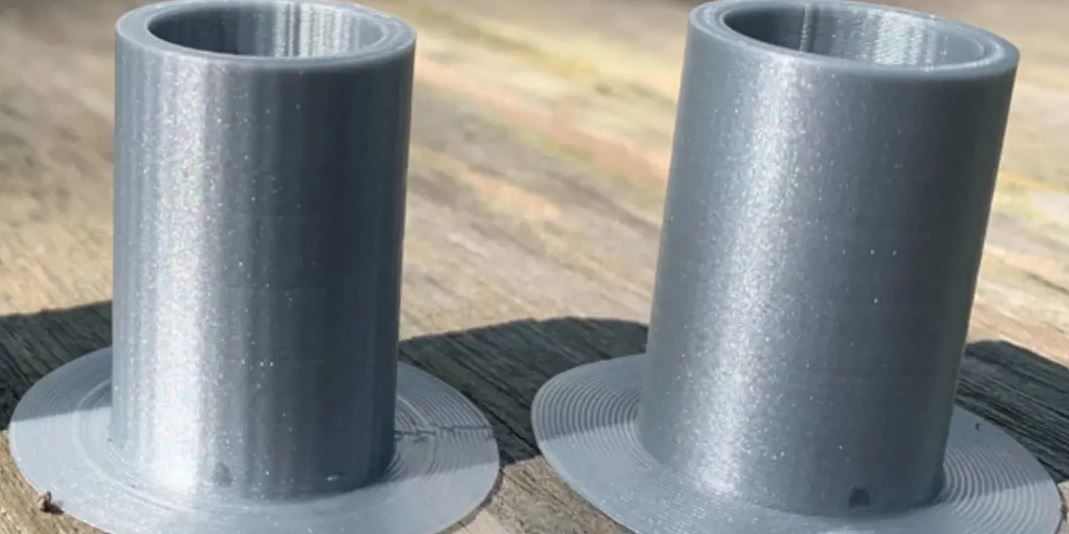
The biggest differences in surface quality will be seen when comparing against Ultimaker Cura 4.13. This is because the foundation of these improvements was made in both Ultimaker Cura 5.0 and S-line firmware version 7.0.3. The previous Cura update contained various print profile tweaks and the firmware release included changes that reduced buffer underrun.
Note: This feature requires you to be using firmware version 7.0.3 or above on your Ultimaker printer. Download the latest firmware version to make sure your printer is fully compatible.
Faster and more reliable supports when printing with support materials
When printing supports using either Ultimaker PVA or Ultimaker Breakaway support materials, you can now expect faster print times and more reliable support structures. As well as improved surface quality on the part of your print that is being supported.
These improvements have come from a variety of tweaks but the most significant are that when printing supports with these materials, a new zig-zag pattern will be used, instead of the previous triangle pattern. The outer wall around the supports has also been removed and the density of supports has been increased.
Print times can be as much as 20% faster and as an added bonus, PVA supports will also now dissolve much faster, allowing for much speedier removal of supports, especially when using the PVA Removal Station.
A more intuitive slicing process
After extensive user testing, we have tweaked the slicing process to make it more intuitive when printing with materials that use intent profiles. The result is that we have separated the decision of which intent profile and layer height you want to use into two distinct and easy-to-understand choices.
We have also updated the tooltip which notifies you when settings have been changes from the default intent profile settings. You can then identify which settings have been changed by going into custom mode where each modified setting will be in italics and will be accompanied by an arrow symbol which will revert any changes when clicked.
Easier collaboration when using 3MF project files
Collaborating while using any of the 250+ materials available in the Ultimaker Marketplace is now easier than ever. When loading up a 3MF project file that uses a material profile that you do not currently have installed, you will now be prompted to download and install any missing profiles.
Additional improvements
The following improvements have also been implemented in the Ultimaker Cura 5.1 beta:
- Material profiles for new upcoming Tough PLA colors (blue, yellow, and gray)
- Numerous bugfixes including security fixes and an issue with monotonic ordering that prevented it from applying to the topmost surface layer of prints. A full list of bugfixes can be found here
Subscribe to AM Chronicle Newsletter to stay connected: https://bit.ly/3fBZ1mP
Follow us on LinkedIn: https://bit.ly/3IjhrFq
Visit for more interesting content on additive manufacturing: https://amchronicle.com/


